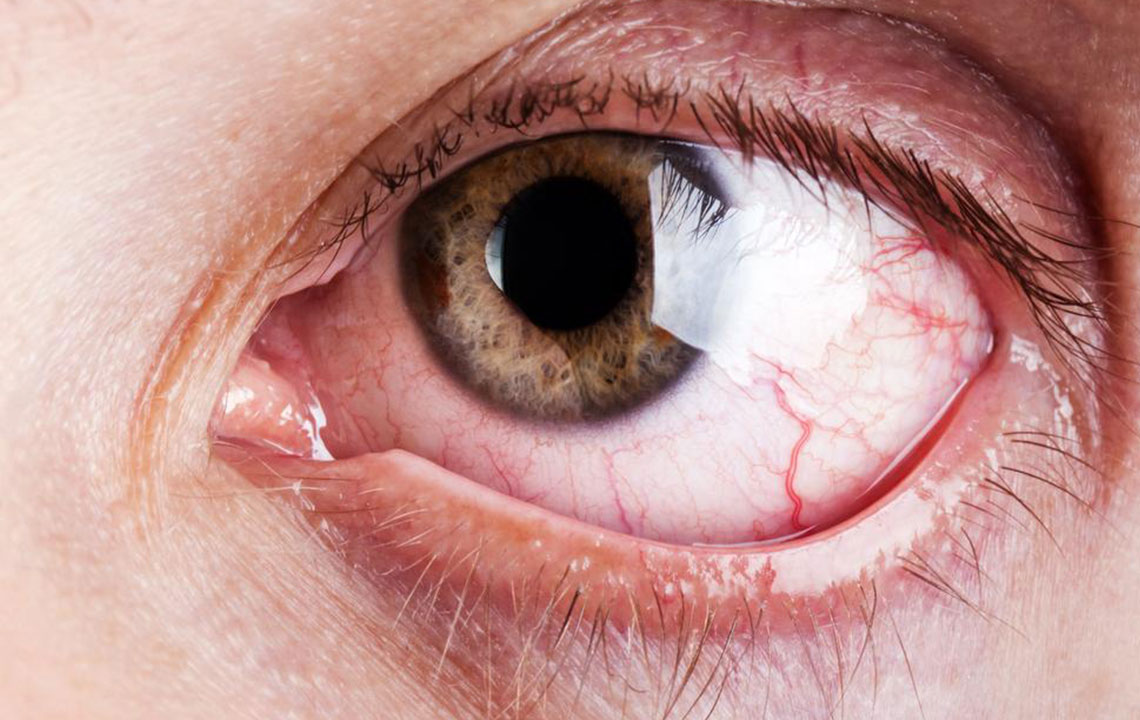Few Vital Causes and Cure of Chronic Dry Eye
Dry eye occurs when the tears fail to keep the surface of eye adequately lubricated. The risk of developing chronic dry eyes increases with age Consequences of dry eyes range constant eye irritation to significant inflammation and can also lead to scarring of the front surface of the eye.
Dry eyes are one of the common syndrome affecting most of the citizens in the country. Common symptoms of dry eye syndrome include burning sensation, itchy eyes, aching sensations, eyes that feel heavy and fatigued, sore eyes, dryness sensation, red eyes, photophobia, and blurred vision.

Following are the causes of chronic dry eye syndrome:
• A consistent layer of tears on the surface of the eye is essential to keep eyes healthy, comfortable and seeing well. The water content in the eyes keep them moist and washes away the dust, debris, and microorganisms, which might damage the cornea, leading to an eye infection.
• Each component of the tear serves a critical purpose. Tear lipids increase lubrication and keep the tear film from evaporating too quickly. Mucin helps to anchor and spreading tears across the surface of the eye. The problem with these components can result in dry eyes.
• One of the causes of the chronic dry eye is the Meibomian glands that do not secrete enough lubricating oil to keep the tear film in the eyes from evaporating.
• In other cases, causes of the chronic dry eye could be due to lacrimal glands that fail to produce a watery fluid that is enough to keep the eyes sufficiently moistened. This condition is called as “aqueous deficiency dry eye”.
• Viewing computer screens, smartphones or other portable devices for longer duration makes us forget to blink more often. This leads to tear evaporation and causing an increased risk of dry eyes symptoms.
• Contact lenses are also one of the causes of chronic dry eyes symptoms as the material used to manufacture contact lenses dries out the water content in the eyes.
• Air-conditioning, ceiling fans, and forced air heating systems tend to decrease indoor humidity which increases the risk of tear evaporation, thereby causing dry eyes symptoms.
• With other health ailments, smoking is also associated eye problems. Smoking also causes chronic dry eyes.
The doctor will ask you certain questions regarding the symptoms of a chronic dry eye before beginning the treatment. Following are the remedies that might be suggested for treating the chronic dry eye symptoms.
- Artificial eye drops
This treatment is usually used for mild symptoms of the chronic dry eye which occurs due to computer use, reading, and other situational causes. Artificial eye drops help in lubricating in nature and is low in viscosity. - Prescription eye drops
Instead of OTC eye drops, your doctor might recommend you with eye drops that not only lubricates your eyes but also help in reducing inflammation. It also helps in producing more natural tears. - Solid inserts
Especially for people suffering from moderate to chronic dry eye symptom, It is usually in the form of sterile that helps in relieving the eyes from dryness and burning sensation. The solid insert consists of sterile (that is placed under the lower eye) that slowly releases lubricant which keeps the eye moist all day long. - Warm compress
This technique helps in opening the clogged meibomian glands that treat dry eyes by applying a warm compress to the eyelids that soften the meibum. - Lipiflow
This kind of thermal pulsation system combines the features of warm compress therapy and meibomian gland expression. This device fits onto the eye and covers the eyelids. and applies controlled heat which softens the hardened meibum. - intense pulsed light
The use of FDA approved Intense Pulse Light (IPL) can be used to treat rosacea of the skin. It occurs on the skin as well as the eyelid together. This handheld device flashes light o a particular intensity which is absorbed by the blood vessels that get dilated and thus reduces inflammation.
While you are using these remedies, other safe home remedies can be applied to get additional relief:
- Nutritional supplements
Nutritional supplements can be a part of chronic dry eye treatment. Some research suggests that supplements containing omega -3 fatty acids assis in decreasing the symptoms of dry eyes. Omega 3 fatty acids can be found cold water fishes such as salmon, sardines, herring and cod. vegetarians can use flax seed oil in food which will help in relieving the symptoms. - Removing eye makeup
Eye make up thoroughly if not removed properly can clog eyelids and make the symptoms of chronic dry eye even worse. Wash your eyelids to remove bacteria that can cause problems with meibomian glands


